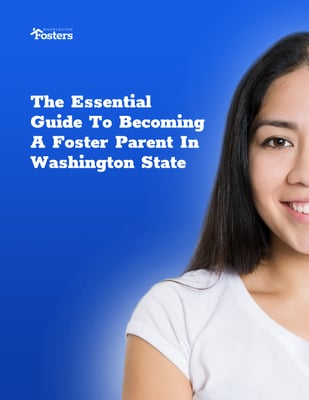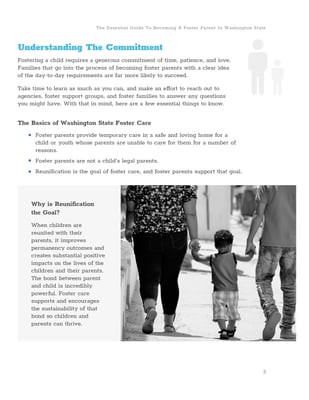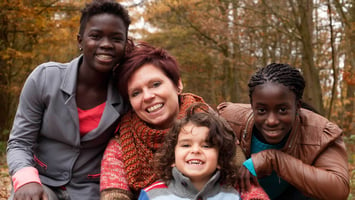Foster parenting is both a challenging and fulfilling endeavor. It’s also, unfortunately, a necessary one. Every child should have a stable home, after all, even if that home isn’t the one they’ve always known.
Contrary to what you may believe, you don’t need to be wealthy or have a certain type of house to become a foster parent.
In fact, as long as you have a big heart and the right reasons for fostering, you can begin making a difference in young lives.
Download Now: The Essential Guide To Becoming A Foster Parent In Washington State
So, what if you do decide that becoming a foster parent is right for you? What’s next?
1. Submit To A Background Check

All foster parents must first pass a background check in order for an agency (private or the State of Washington) to grant them a license. For those with no criminal history, this is merely a formality.
For those who do have a criminal history, however, the process is more complicated. Past troubles with the law are not an automatic disqualifier, though, so don’t let it stop you from exploring your options.
Those who have lived outside of Washington State in the past five years will also be required to submit their fingerprints as part of the background check.
2. Participate In Training
New foster parents need to attend a class called Caregiver Core Training (CCT). This eight-session class provides an overview of all the legal and specific skills necessary to be a foster parent of a child with challenging behavior or special needs.
Also required are extensive interviews with a licensing agency about personal histories, parenting styles, and the type of home a foster parent will be providing.
3. Learn The Rules

Like every process involving government agencies and oversight, foster parenting has a number of rules to navigate. Many of these rules will be covered in the CCT class, but aspiring foster parents should also do research on their own.
4. Be Ready To Collaborate
Foster children often arrive with a team of social workers, therapists, teachers, attorneys, and more. This means you need to be willing to work with other people, and often.
Outside of the nuts and bolts of the process of becoming a foster parent, the single, most important thing you’ll need to be successful is flexibility.
Being a foster parent means being willing to roll with the punches when things don’t go as planned. Every child has a different background and different needs. Every day will bring a unique challenge.
As long as you have a big heart, a willingness to learn, and the patience required to love a child trapped in a confusing and scary situation, you’ll have everything you need to succeed.
For more information and advice on foster parenting, download our free resource The Essential Guide To Becoming A Foster Parent In Washington State.








